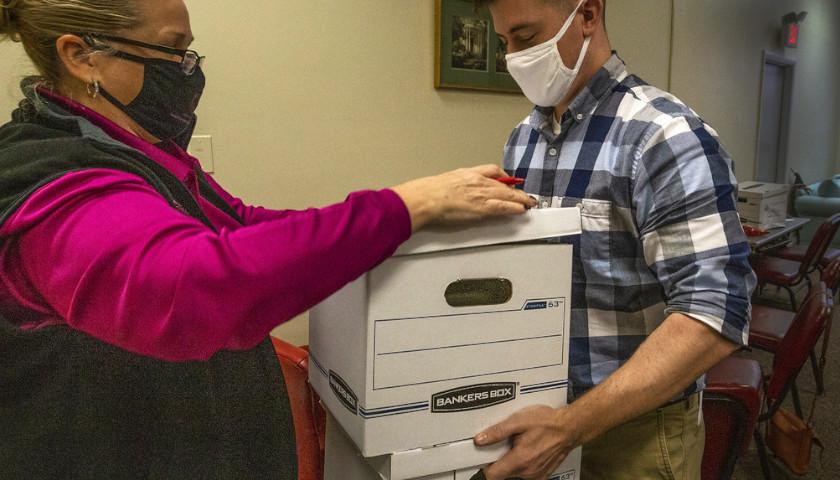by Natalia Mittelstadt
As more issues arise from the 2020 presidential election in Fulton County, Georgia is taking steps to better secure its future elections through cleaning its voter rolls.
According to state investigators, the county’s audit of the most recent presidential election included multiple errors but the overall outcome of the audit did not change.
“Human error” was the cause for mistakes in the audit, according to the state investigators, because the process required paper ballots being sorted by candidate, hand-counted totals being written on paper, then transcribed into computers.
The investigators’ findings were part of a consent order approved by the Georgia State Election Board on June 21, according to documents obtained by the Atlanta Journal-Constitution.
“The RLA (risk-limiting audit) was the first of its kind in Georgia,” a county attorney wrote to the secretary of state’s office. All of the counties “were not properly assisted in preparing for the RLA and were not given tools and resources to allow them to reconcile the data that was entered. A more robust system capable of handling the data and additional time would eliminate the issues.”
Election workers likely double-counted when they were unable to tell if the auditing software recorded their initial tally, causing them to enter the numbers again. There were also several mistyped vote totals or votes allocated to the wrong candidate.
The errors found by the investigators amounted to about 3,000 extra absentee votes counted for then-Democrat presidential nominee Joe Biden during the audit, according to a rough estimate by the Atlanta Journal-Constitution.
However, it was not used for the state’s certified vote count. The overall audit count was close to the official machine results.
The state election board “accepted the consent order as an appropriate resolution of the investigation,” Deputy Secretary of State Jordan Fuchs told Just the News on Tuesday. “The investigation specifically found that any data entry errors committed by Fulton did not affect the results of the 2020 election. The case is now closed.”
Fulton County had multiple irregularities during the presidential election.
The state’s handpicked election monitor for the county documented two dozen pages of mismanagement and irregularities during vote counting in Atlanta in November 2020, including double-scanning of ballots, insecure transport of ballots, and violations of voter privacy.
Amid Fulton County’s issues, Georgia Secretary of State Brad Raffensperger announced updates to the state’s voter rolls.
A total of 191,473 voter records that had been placed into “inactive status” because of returned mail or based on the National Change of Address list are to be removed if there is no response to a mailed notice, the secretary of state’s office said in a press release Tuesday.
State law allows for voter registration records to be removed after being in an “inactive” status for two general elections and not updated in that timeframe.
“Georgia’s voter rolls are the cleanest in the nation, and list maintenance efforts like this ensures the integrity of our elections,” Raffensperger said Tuesday.
A total of 75,676 records have already been canceled this year due to death or moving out of state.
In February, Raffensperger told Just the News that federal law can prevent Georgia from cleaning its voter rolls “for 11 months” of the year during a presidential election cycle.
He said that the 1993 National Voter Registration Act prevents states from cleaning their voter rolls less than 90 days before a federal election.
“Come 2024, 90 days before the primary, we can’t update” the voter rolls, he said.
With a May or June primary followed soon after by the start of absentee or early voting for the November general election, the state could find itself without a legal window in which to clean its voter rolls for the general.
In the event of runoff elections following closely on the heels of general elections, which the closely divided swing state has had in the past two election cycles, Georgia will again “run out” of time, Raffensperger said.
– – –
Natalia Mittelstadt graduated from Regent University with Bachelor of Arts degrees in Communication Studies and Government.





